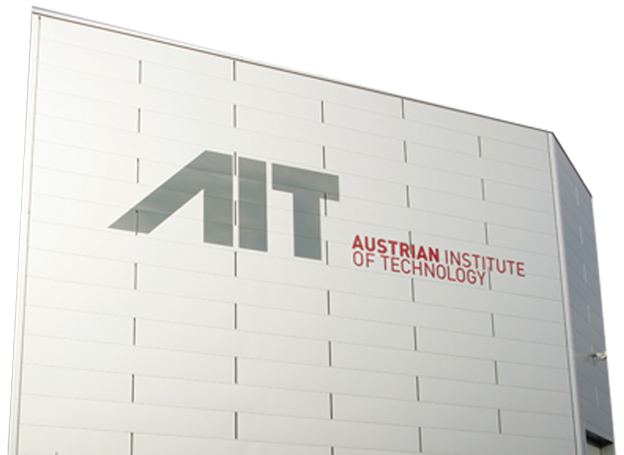

Join a collective dedicated to making Peace Tech accessible to those who need it the most — the individuals and organisations working tirelessly in communities around the world to foster peace and change.
About us
What is important to us

Through our networks—including the European Union, United Nations, OSCE, and African Union—we connect global influence with local insight. But the most important voices are those of grassroots peacebuilders. Our work centres lived experience, not institutional agendas, and prioritises those too often left out of digital conversations.
We create inclusive spaces where civic actors, technologists, and frontline mediators co-develop PeaceTech strategies that are practical, trusted, and shaped by those most affected. This is how we shift the agenda—from something built for communities to something built with them.

PeaceTech must be usable, not just impressive. Our work is co-designed with peacebuilders, communities, and civil society to ensure tools are understandable, adaptable, and grounded in daily realities. Innovation means little if it excludes the people it claims to serve.
We focus on open-source tools, multilingual resources, and decentralised systems that reflect actual needs. Accessibility is not an afterthought—it’s the foundation of practical peacebuilding. We work alongside those most affected to develop tools they can trust, apply, and shape for their own goals, on their own terms.

Peacebuilders deserve control over the technologies and data that affect them. Our work supports decentralised infrastructure that prioritises local ownership, protects digital rights, and reflects peacebuilders’ lived realities—not just technical requirements.
Austria’s leadership in Gaia-X offers a strong foundation, but real sovereignty comes from collaboration. We co-develop ethical approaches with civic actors and mediators to ensure tools serve communities, not institutions. Data use must be rooted in consent, dignity, and trust. The power to shape, store, and share data must belong to those it impacts most.

Looking outward
The AIT Austrian Institute of Technology is Austria’s largest research and technology organization and a key contributor to Europe’s digital and security infrastructure. At the AIT Center for Digital Safety & Security, we develop future-facing technologies that enable secure, ethical, and trustworthy systems in an increasingly connected world. As AI, IoT, and biometric systems reshape societies, our work is grounded in a commitment to human dignity, transparency, and long-term resilience.
AIT is internationally recognised for its leadership in digital sovereignty and decentralised infrastructure, including through its coordination of Gaia-X Austria. We bring this experience into new domains through initiatives like the PeaceTech Alliance, which offers a collaborative space for researchers, peacebuilders, and technologists to co-create solutions that serve conflict prevention, digital inclusion, and peacebuilding.
Though firmly anchored in Austria’s values of neutrality and multilateralism, our outlook is global. AIT's research contributes to international peace and digital governance dialogues, including through the International Digital Security Forum (IDSF), which champions responsible, human-centric innovation. With initiatives like the PeaceTech Alliance, we aim to empower peacebuilders—especially those underrepresented in global tech systems—with the tools, knowledge, and shared platforms they need to drive change in their own contexts.
From Vienna to vulnerable regions across the globe, we are committed to ensuring that emerging technologies work for people, not just systems—by building trust, promoting local ownership, and advancing digital tools that support peaceful, inclusive futures.
activating communities
PeaceTech has enormous potential to support those working on the frontlines of peace. But to realise that potential, we need to reflect on where things aren’t working as well as they could. Too often, tools are developed in ways that don't fully reflect the realities of peacebuilders themselves—leading to solutions that may be innovative in theory, but less effective in practice.
Many initiatives are still shaped by priorities and perspectives from the Global North, while the experiences and insights of those in the Global South remain underrepresented—not just in design processes, but in the data that informs the tools themselves. This creates a disconnect between where PeaceTech is built and where it is most urgently needed.
The PeaceTech Alliance aims to help rebalance that equation. We draw from civic tech values—accessibility, co-creation, and openness—to support peacebuilders as partners in the design and application of technology. By widening who gets to shape PeaceTech, we’re working toward tools that are not only technically robust, but also trusted, grounded, and relevant to the communities they’re meant to serve.

The Center of Digital Safety & Security at the AIT Austrian Institute of Technology is committed to developing state-of-the-art information and communication technologies to ensure that today’s digital systems are highly secure and reliable in the context of comprehensive digitization and global networking. Based in Vienna, AIT pioneers innovative solutions that address global challenges. By contributing to the development and implementation of PeaceTech solutions and fostering collaboration between researchers, policymakers, and practitioners, AIT is shaping a future where technology is a force for good. Learn more about us: ait.ac.at/dss & gaia-x.at

Nathan Coyle is a tech-for-good expert, specialising in Peace Tech and digital development. He has worked with governments globally to enhance their digital outreach, and is a Fellow at The Royal Society of Arts. Nathan has contributed to publications like The Guardian and authored 'Open Data for Everybody'. He is a TEDx speaker and advocates for social tech across Europe, he also won Thought Leader of the Year Award at the UK Innovation Awards 2024.
Helmut Leopold has over 30 years of experience in digitalisation, currently heading the Center for Digital Safety & Security at the AIT. He played a key role in Austria’s broadband introduction and has received international awards for his innovation in digital technologies. He has held leadership roles in numerous international technology forums.
Mario Drobics is the Head of Competence Unit for Cooperative Digital Technologies at AIT, focusing on interoperability, security, IoT, and data analysis. With a PhD in Applied Mathematics, he leads research in fields like public safety and health, and chairs working groups on IoT security and AI.
Michael Mürling has more than 20 years of experience as a communications officer and marketing professional in the Austrian high-tech sector. He is head of the marketing and communications division at AIT´s Center for Digital Safety & Security. Michael is a graduate of the European Union-funded AI4Gov Master’s programme run by Universidad Politécnica de Madrid and Politecnico di Milano, which focuses on future leaders of digital transformation for the increased development and adoption of AI in the public sector. He also holds a Master’s degree in communication economics and management.
Philipp Agathonos is the Austrian Ambassador to Vietnam, specialising in EU integration, security policy, civilian crisis management, and new technologies. With a background in political science, he has held diplomatic posts in Brussels, Beijing, and Vienna, and focuses on peacebuilding and cyber security.